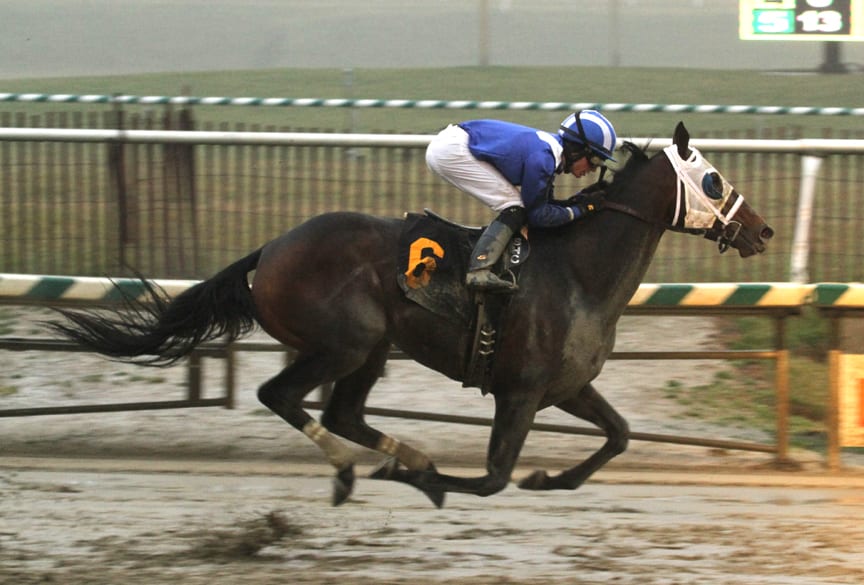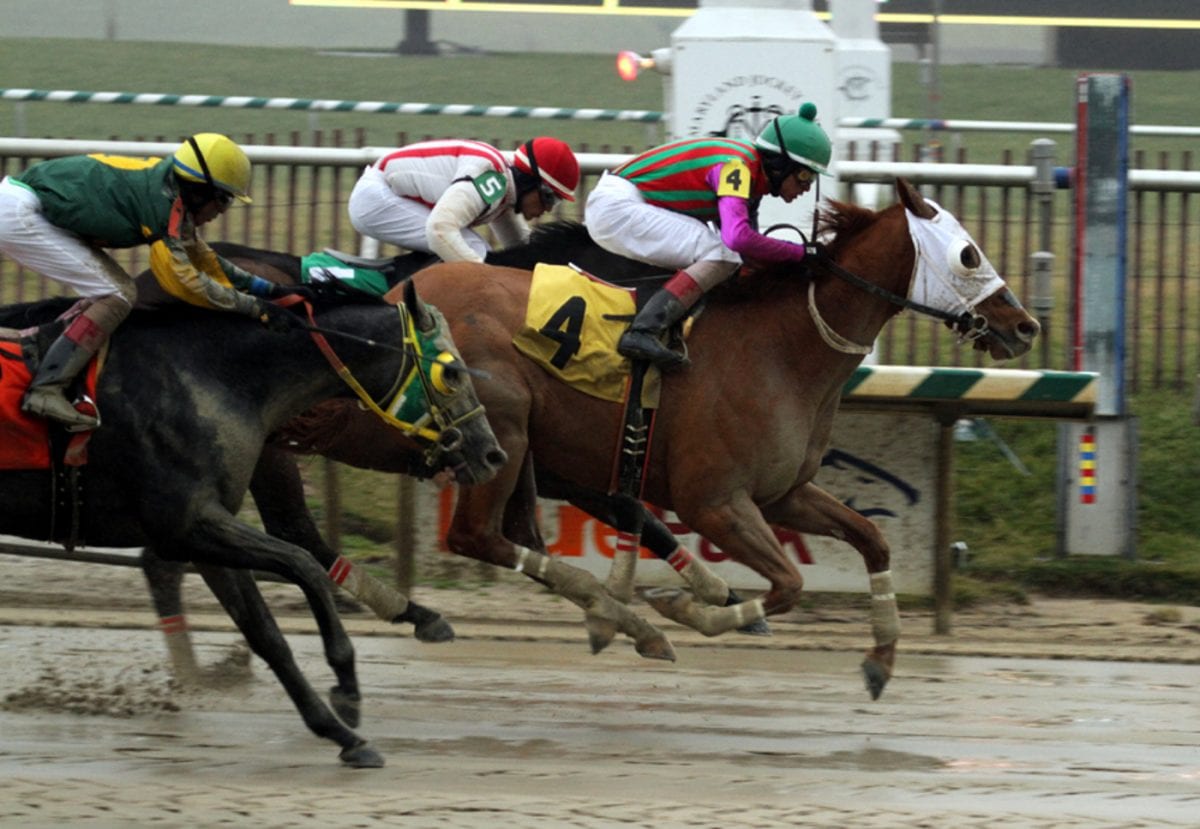
Elnaawi won the Native Dancer at Laurel — one of three route stakes contested last week at nearby tracks. Photo by Laurie Asseo.
by Frank Vespe
Last week, Parx Racing hosted two stakes for older horses. Laurel hosted four. And Aqueduct had three of its own. That’s nine stakes for older horses — all within four days, and a couple hundred miles, of each other.
So it’s no great surprise that the tracks were tripping over each other for horses.
For the distaff set, there were three 1 1/16 mile stakes: the Nellie Morse at Laurel (on January 3, for fillies and mares four and up) and the Affectionately (January 1) and the Bay Ridge (for New York-bred fillies and mares on December 31). Those three races attracted a total of 26 runners.
On the boys’ side, there were two sets of overlapping races. Parx and Laurel each held a sprint stake: the seven-furlong Valley Forge at Parx and the six-furlong Fire Plug at Laurel. That pair of races drew 16 runners.
And all three tracks had a route stake during the week: the Auld Lang Syne at Parx, Native Dancer at Laurel, and the Alex M. Robb (for New York-breds) at Aqueduct. Those three also drew 26 runners.
The nine races, in total, drew 74 horses — about eight per event.
That’s not terrible — but of course, it could have been better. With a little coordination, the tracks could largely have avoided each other, giving each a larger horse population to draw from. That would have made for fuller fields and better betting opportunities — and, thus, more wagering.
But that’s not the way horse racing typically works.
Of course, the tracks aren’t colleagues per se; they’re competitors, each trying to maximize their share of a shrinking wagering pie. And those old habits — built up through long years of battle — die hard.
Who’s to blame? Who knows? It’s a safe bet that each track will point at one or both of the others.
But, as Ferrari tells Rick in Casablanca, “[I]n this world, today, isolationism is no longer a practical policy.”
A lesson that, in horse racing, still needs to be learned.







